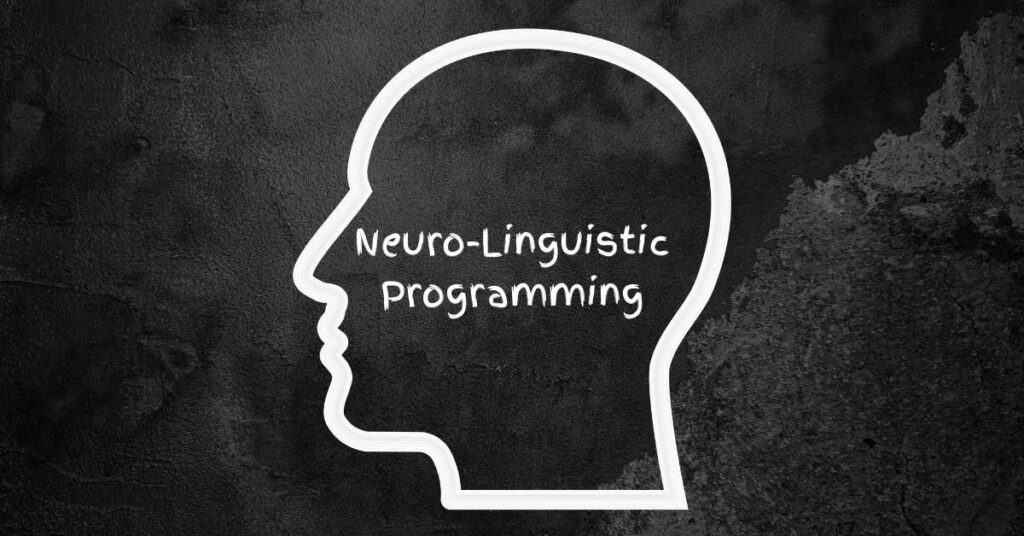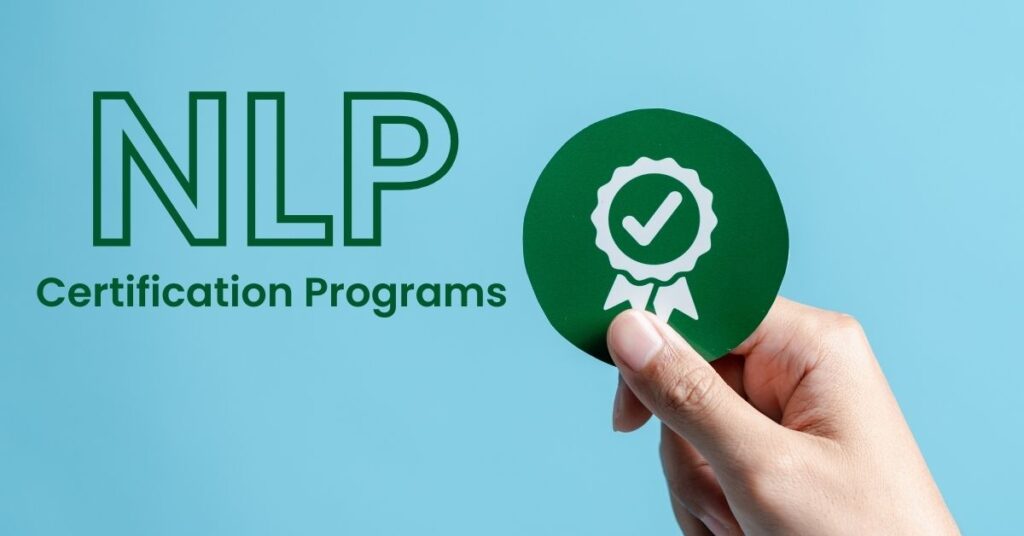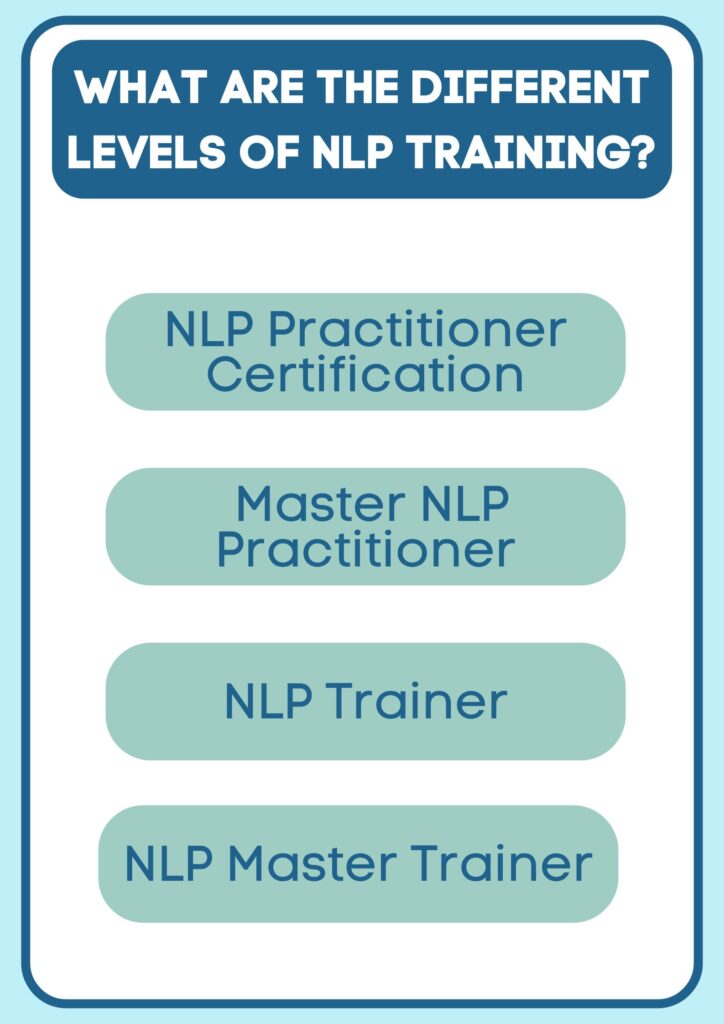Become an NLP Practitioner is an exciting and rewarding journey, but one of the first questions many people have is, ‘’How long does it take?’’ The good news is that it doesn’t have to take forever! Depending on the course you choose and how much time you can dedicate, you can become certified in as little as 7 to 14 days with an NLP Practitioner Certification.
For example, I’ve worked with many busy professionals coaches, business leaders, even full-time parents who completed their certification within two weeks. These courses are designed to be immersive, providing you with the foundational skills you need to start applying NLP techniques right away.
If you’re looking to master NLP on a deeper level, such as becoming a Master Practitioner, you may want to invest a bit more time anywhere from a few months to a year. This advanced certification allows you to dive into more complex strategies and tools, offering a more comprehensive understanding.
No matter your path, becoming an NLP practitioner is a flexible process that can fit into your life and career. The key is to take the first step and find a course that aligns with your goals and schedule. You’ll be surprised at how quickly you can make a real impact!
What is an NLP Practitioner?

An NLP Practitioner is someone trained in Neuro-Linguistic Programming (NLP) techniques to help people transform their thoughts, emotions, and behaviors for positive change. As an NLP Practitioner, you become an expert in understanding how the mind works and how language shapes our perceptions and actions. Whether you’re coaching individuals, leading a team, or simply aiming for personal growth, NLP gives you the tools to create powerful shifts in both yourself and others.
What Does an NLP Practitioner Do?
An NLP Practitioner uses proven techniques to help people overcome mental barriers, improve communication, and achieve their goals. This can include:
- Helping clients break negative habits by identifying limiting beliefs and replacing them with empowering ones.
- Improving communication skills to build better relationships at work or in personal life.
- Boosting confidence by shifting mindsets and creating new, positive thought patterns.
- Guiding personal development by using NLP strategies that promote self-awareness and emotional intelligence.
Who Should Become an NLP Practitioner?
If you’re passionate about helping others achieve their potential, becoming an NLP Practitioner is a game-changer. This training is ideal for:
- Life coaches or business coaches looking to enhance their impact.
- Entrepreneurs who want to improve communication and leadership skills.
- Therapists seeking additional tools to help clients overcome emotional or psychological barriers.
- Anyone committed to personal growth and transformation.
Many NLP practitioners go on to build successful coaching practices, work with corporate teams, or apply NLP to improve their own lives and relationships.
Benefits of Becoming an NLP Practitioner
- Boost your career: NLP skills are in high demand across coaching, therapy, business, and leadership roles.
- Help others achieve success: Whether you’re working with clients or teams, you’ll have tools to help them overcome challenges and thrive.
- Unlock your potential: By mastering NLP, you not only help others you’ll also experience profound personal growth.
For example, I once worked with a business owner struggling with self-doubt during presentations. After a few sessions of NLP coaching, we used anchoring techniques to help him tap into feelings of confidence whenever he spoke in public. Within weeks, he noticed a significant improvement in both his delivery and audience engagement.
NLP Certification Programs: How Long Does It Take?
If you’re excited about becoming a certified NLP Practitioner, you’re probably wondering, How long does it take? The great news is that NLP certification programs are flexible, allowing you to choose a timeframe that fits your lifestyle and goals. Let’s break down the options so you can find the best fit for your journey.

NLP Practitioner Certification: Quick and Effective
For those eager to dive in, you can complete an NLP Practitioner Certification in as little as 7 to 14 days. These intensive programs are designed for fast results, focusing on key techniques like rapport building, anchoring, and language patterns. In just a couple of weeks, you’ll be equipped with practical skills to start applying NLP in real life, whether it’s for personal growth, coaching, or business.
This accelerated approach is perfect for busy professionals who want to make an immediate impact. Many of my clients, from entrepreneurs to life coaches, have completed their certification in under two weeks and began using NLP techniques to transform their careers and relationships.
Master NLP Practitioner: A Deeper Dive
If you’re looking for a more advanced certification, the Master NLP Practitioner program typically spans 3 to 12 months. This deeper dive allows you to explore more complex NLP strategies like timeline therapy, advanced communication skills, and personal transformation techniques.
The extended timeframe gives you the opportunity to practice NLP in real-world settings, ensuring you’re fully confident in your skills. If you’re serious about making NLP a key part of your professional life whether as a coach, trainer, or consultant—this advanced certification is the way to go.
Flexibility to Learn at Your Own Pace
The beauty of NLP certification programs is that they are adaptable to your schedule. If you have limited time, online NLP courses allow you to study at your own pace. With access to webinars, videos, and practical exercises, you can complete your training on weekends, evenings, or whenever works best for you.
How Much Does It Cost?
The cost of an NLP certification varies depending on the program, but you can expect to invest anywhere from $1,000 to $4,000. While the initial price may seem steep, think of it as an investment in your future. Many certified NLP practitioners go on to build thriving coaching businesses or use NLP skills to enhance their careers.
What Are the Different Levels of NLP Training?

If you’re ready to dive into Neuro-Linguistic Programming (NLP), it’s important to understand the different levels of NLP training. Each level offers unique skills and knowledge, allowing you to grow both personally and professionally. Whether you want to become a certified NLP coach, enhance your leadership abilities, or simply use NLP to improve your life, there’s a path that fits your goals.
Let’s break down the levels so you can decide where to start.
NLP Practitioner Certification
The NLP Practitioner level is the foundation of all NLP training. This certification provides you with the core techniques and tools to understand how thoughts, language, and behavior shape human experience. You’ll learn essential skills like:
- Anchoring: Creating positive emotional responses to specific triggers.
- Reframing: Changing negative perceptions into positive ones.
- Rapport Building: Mastering communication techniques to connect with others on a deeper level.
This level of training typically takes 7 to 14 days for intensive programs or can be spread out over a few weeks for part-time learners. It’s perfect for anyone looking to improve their personal growth, leadership, or coaching skills.
Master NLP Practitioner
The Master Practitioner level takes your NLP expertise to the next level, focusing on advanced techniques and deeper personal transformation. This is where you gain a more comprehensive understanding of language patterns, timeline therapy, and strategic intervention. You’ll learn how to:
- Work with subconscious programming to help clients overcome deep-rooted beliefs.
- Use timeline techniques to address past trauma or fears.
- Apply NLP in complex coaching, therapy, or business situations.
This advanced training can take anywhere from 3 to 12 months and includes hands-on practice and case studies to ensure mastery of the material. It’s ideal for coaches, therapists, and professionals seeking to deepen their impact.
NLP Trainer
At the NLP Trainer level, you’re learning to teach and train others in NLP techniques. This level is designed for those who want to become certified NLP trainers, leading their own workshops or certification programs. You’ll gain skills in:
- Presenting NLP concepts clearly and effectively.
- Facilitating group learning in both classroom and workshop settings.
- Certifying NLP Practitioners and Master Practitioners.
Becoming an NLP Trainer can take several months to over a year and often requires completing both Practitioner and Master Practitioner levels first. It’s perfect for those looking to share their passion for NLP by training others and expanding their influence.
NLP Master Trainer
The NLP Master Trainer is the pinnacle of NLP training. As a Master Trainer, you not only train practitioners and trainers but also develop new NLP tools and methodologies. This level focuses on:
- Innovating NLP techniques and research.
- Mentoring new trainers and practitioners.
- Becoming a recognized thought leader in the NLP community.
The journey to becoming a Master Trainer can take years and involves significant experience, contribution to the NLP field, and a deep commitment to personal and professional development.
How to Choose the Right NLP Training Program
Choosing the right NLP (Neuro-Linguistic Programming) training program can feel like a big decision, especially with so many options out there. Whether you’re aiming for personal growth, starting a coaching career, or wanting to boost your communication and leadership skills, picking the right program is key to unlocking your full potential. Here’s a step-by-step guide to help you choose the perfect NLP training that suits your goals.
Get Clear on Your Goals
Before diving into any program, ask yourself: What do I want to achieve with NLP?
- Is it for personal development or to help others as a coach?
- Do you want to use NLP to improve communication and leadership skills in your current role?
Defining your goals will help you choose the right level—whether it’s a foundational NLP Practitioner Certification, advanced Master Practitioner, or the more specialized NLP Trainer path.
Look for Accreditation and Credibility
Not all NLP programs are created equal. To ensure you’re getting the best training, choose programs accredited by recognized NLP organizations like:
- The International NLP Association (INLPA)
- The Association for Neuro-Linguistic Programming (ANLP)
Accreditation ensures the program meets industry standards. It’s also smart to read reviews and testimonials from past students to get a sense of the program’s effectiveness and reputation.
Decide Between Online vs. In-Person
One of the perks of NLP training is the flexibility it offers:
- Online NLP training is perfect if you have a busy schedule. It lets you learn at your own pace, with access to recorded webinars, live coaching sessions, and interactive exercises.
- In-person training offers a more immersive experience with real-time feedback and group interaction, which can fast-track your learning.
Choose the format that best fits your learning style and lifestyle.
Check the Course Content
Make sure the course covers the essential NLP skills you need:
- Rapport building for better communication.
- Anchoring to create positive emotional responses.
- Language patterns to influence thoughts and behavior.
- Reframing to shift negative thinking into empowering beliefs.
If you’re going for advanced certification, ensure the Master Practitioner course includes deeper tools like timeline therapy and advanced communication strategies.
Evaluate the Trainers’ Experience
A great NLP trainer can make all the difference. Look for trainers who:
- Are certified with years of practical experience.
- Offer personal mentorship and guidance.
- Have a track record of successfully training NLP professionals.
The right trainer will help you understand not just the theory, but how to apply NLP effectively in real-world situations.
Consider the Time Commitment
NLP training programs can vary in length:
- NLP Practitioner Certification typically takes 7 to 14 days for an intensive program or several weeks part-time.
- Master Practitioner can take 3 to 12 months, offering more in-depth learning and practice.
- NLP Trainer may require several months to a year if you want to train others.
Choose a program that fits your availability and gives you the time to absorb the material.
Understand the Cost
The cost of NLP training can range from $1,000 to $4,000, depending on the program’s depth and whether it’s online or in-person. Consider this an investment in your personal and professional development, with long-term returns that can elevate your career or coaching practice.
Post-Certification Support
The best NLP programs offer more than just a certificate. Look for programs that provide:
- Ongoing mentorship and coaching after the course.
- Alumni networks where you can connect with other practitioners.
- Access to refresher courses and workshops to keep your skills sharp.
Tips for Succeeding in NLP Training
Embarking on NLP (Neuro-Linguistic Programming) training is an exciting step toward personal growth, improved communication, and professional success. However, to make the most of this transformative journey, it’s essential to approach your training with the right mindset and strategies. Here are some key tips to help you thrive and succeed in your NLP training.

Be Open to Change
One of the core principles of NLP is embracing change whether it’s in your thoughts, behavior, or communication style. Enter your training with an open mind, ready to explore new ideas and challenge your current ways of thinking. The more flexible and adaptable you are, the easier it will be to apply the powerful techniques you’ll learn.
Practice, Practice, Practice
NLP is not just about theory it’s all about practical application. To truly master NLP techniques like anchoring, rapport building, and reframing, you need to actively practice them in real-world situations. Whether it’s during the training exercises, with a practice partner, or in daily life, the more you apply what you learn, the faster you’ll become confident in using NLP tools.
Engage Fully in Your Training
Whether you’re taking online or in-person NLP training, your level of engagement will directly impact your success. Participate in discussions, ask questions, and take advantage of the opportunities to interact with trainers and fellow students. The more involved you are, the deeper your understanding will become.
Connect with Fellow Students
Learning from others is an essential part of NLP training. Connecting with your peers allows you to exchange experiences, share insights, and practice techniques together. Building a supportive network can boost your confidence and deepen your learning.
Stay Curious and Ask Questions
NLP is a dynamic field, and there’s always something new to learn. If a concept doesn’t click right away, don’t hesitate to ask questions. Engage with your trainers, dive into additional resources, and keep a curious mindset throughout the course.
Take Time for Self-Reflection
One of the most powerful aspects of NLP is how it fosters self-awareness. Take the time to reflect on your personal growth throughout the training. Think about how the techniques are impacting your mindset, communication style, and interactions with others.
Stay Committed to the Process
NLP training is a journey, and like any journey, it requires dedication. While some techniques may feel easier to grasp than others, staying consistent and committed will help you push through any challenges. The more you invest in your training, the more you’ll get out of it.
Apply NLP Beyond the Classroom
To truly succeed in NLP, it’s important to take what you’ve learned and use it in your everyday life. Whether it’s improving your communication at work, enhancing relationships, or overcoming personal challenges, applying NLP outside the classroom helps you solidify your skills.
By following these principles, you’ll not only excel in your NLP training but also experience lasting personal and professional transformation. The journey may be challenging, but with the right mindset, it will be incredibly rewarding.
FAQs
Do I need any prior experience to start NLP training?
No prior experience is required to start an NLP Practitioner course. Most programs are designed for beginners looking to learn the foundational skills of NLP.
What can I do with an NLP Practitioner certification?
With an NLP certification, you can work as a life coach, business coach, or consultant, helping others overcome challenges and achieve their goals. Many use NLP to enhance careers in leadership, therapy, or personal development.
How much does it cost to become an NLP Practitioner?
The cost of an NLP certification can range from $1,000 to $4,000, depending on the course format, level of training, and the reputation of the training provider.
Can I take NLP training online?
Yes, many NLP programs offer online training options, allowing you to learn at your own pace with access to webinars, videos, and practical exercises.
What are the benefits of becoming an NLP Practitioner?
Becoming an NLP Practitioner boosts your communication skills, improves your emotional intelligence, helps you guide others through transformation, and enhances your personal development. It also opens doors to career opportunities in coaching, consulting, and leadership.
Conclusion
NLP training is a powerful journey that equips you with transformative skills to enhance both personal and professional growth. Whether you’re completing a quick NLP Practitioner Certification or diving deeper with a Master Practitioner or Trainer path, the key to success lies in being open to change, practicing consistently, and engaging fully in the process.
By choosing the right program, setting clear goals, and applying what you learn in real life, you can unlock your potential and positively impact the lives of others. Your NLP journey begins with one step take it, and watch the transformation unfold!





